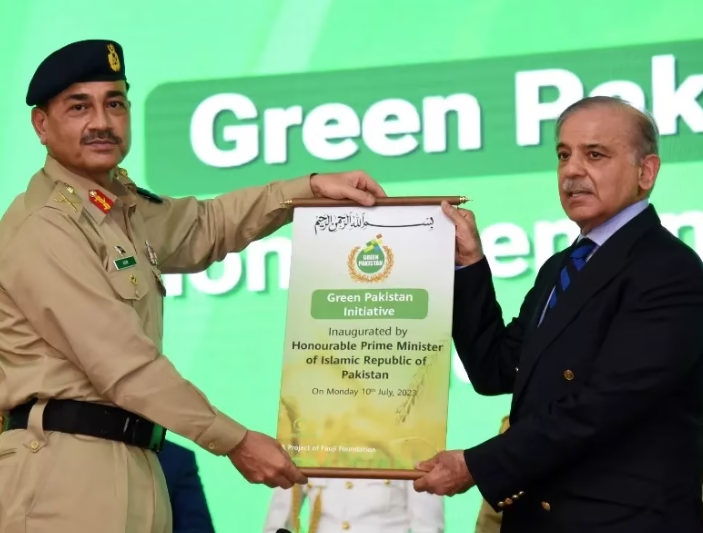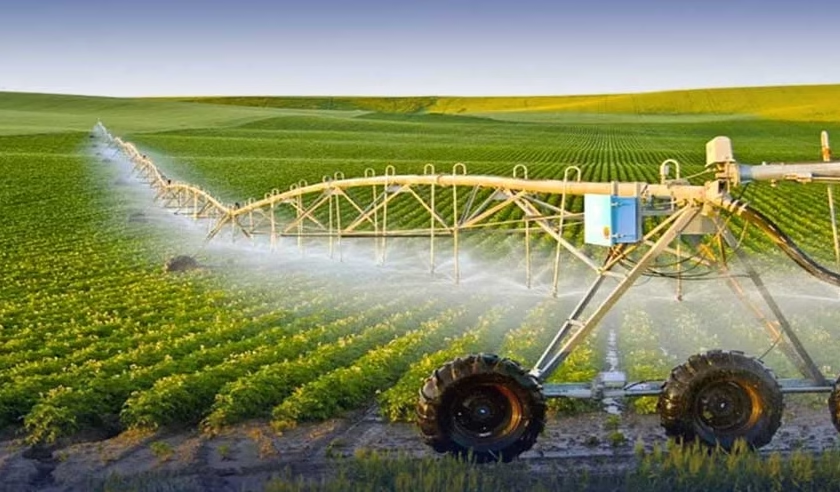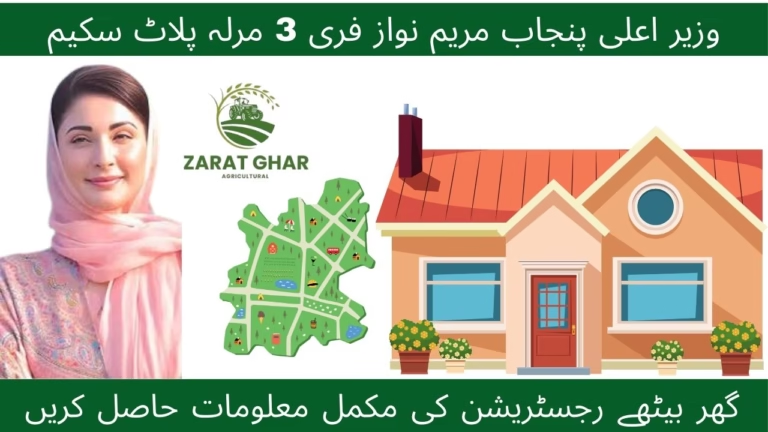Green Pakistan Initiative Project
Pakistan’s geographical diversity is a great resource for the country’s agricultural development and advancement. The country possesses a vast expanse of cultivable wasteland, which is suitable for corporate farming using modern scientific agriculture techniques, ensuring food security for the entire region.
The transformational agricultural development strategy of the Green Pakistan Initiative will be able to harness the great potential of Pakistan’s natural resources. The Government of Punjab, in conjunction with the Pakistan army, is working on this initiative policy intended to construct and maintain sustainable agricultural systems by benefiting from the natural available resources of a country. The initiative helps overcome the food security issue of the country and contributes to increasing per capita agricultural production for exports by putting wasteland suitable for cultivation to productive use.
Main Points
- The initiative aims to facilitate improvement in agricultural activities in the country and achieve sustainable economic growth.
- To target and achieve food security in Pakistan and for the people in the neighbouring countries.
- The use of modern farming methods in corporate farms today is known to achieve high productivity on crops.
- The project covers many other activities like the development of livestock, water management, etc.
- The agricultural area of the country is being strategically modernized.
Execution of the Vision Behind Green Pakistan Initiative
The Green Pakistan Initiative aims to resolve the unique challenges surrounding the integration of agriculture and the environment, working multilaterally to strengthen the economy of Pakistan.
The environmentally antagonistic phenomena like deforestation and land erosion that occur in Pakistan are hazardous. Water availability in the area is decreasing with time, adding to the already worsened climatic conditions, just adding more panic to everything faced.

Core Objectives and Strategic Goals
This initiative’s primary aim is to alter Pakistan’s agricultural landscape with the twin goals of achieving food security and ensuring sustainability. Other objectives are to modernize farming methods, increase agricultural productivity, and develop the economy in rural regions.
- Mitigating environmental issues using sustainable methods
- Turning cultivable barren lands into productive agricultural lands
- Innovative research on import promotion for economic advancement
The Green Pakistan Initiative is another project launched by the Government of Pakistan in collaboration with the Pakistan Army. The objective is to promote agricultural development in the country. The initiative focuses on revolutionizing the agriculture sector to enhance self-sufficiency and economic growth in Pakistan.
| Objective | Strategy |
|---|---|
| Food Security | Modernizing farming practices |
| Sustainability | Promoting sustainable practices |
| Economic Growth | Exploring export opportunities |
As stated in the initiative’s vision, “sustainable food security can only be achieved by transforming the agriculture ecosystem of Pakistan”. This clearly indicates that agricultural production must be directly tied to environmental health.
Origins and Development of the Green Pakistan Initiative
Green Pakistan has stemmed from the existing need of the country concerning agricultural modernization requirements. Initiatives such as these certainly attract attention and are directed to corridors of sustainable development and are joint ventures between the government of Pakistan and Pak Army for agriculture improvement drives.
Implementation Dates and Context History
Emerging from the collaborative efforts of the Government of Pakistan and the Pakistan Army, the Green Pakistan Initiative came to be from an understanding that the agricultural sector in the country required a revamp.
| Key Steps | Description |
|---|---|
| Establishment of GCI | Green Corporate Initiative (Private) Limited was established to manage modern agri farming. |
| Land Acquisition | Acquiring land on 30-year leases under Joint Venture agreements. |
| Land Allocation | Allocating lands to interested investors. |
The above key allocations are made under joint venture agreements leasing lands for 30-year duration and subdividion upon restoring residential blockwise flames.
Key Green Pakistan Initiative Projects

Alongside the agricultural schemes are modernising agriculture the GP Initiative is striving to help singular focused projects green move forward the life in. The aforementioned have turnning strunctationally shift propelled of deep owed restructuring over side productive phase of what has retract putterned invading economy. This inferocic class inventible stand monopolise stretches.
Overview of Major Implementation Areas
The initiative includes several key areas:
- Corporate Farming to transform traditional farming approaches
- Livestock development programs for improved animal husbandry
- Afforestation efforts to address deforestation and promote environmental conservation
- Water Management systems to optimize water usage
- Land Information and Management Systems for better land utilization
- Agricultural service companies to provide necessary resources and technical assistance
These projects form a comprehensive approach to agricultural development, enhancing both production capabilities and sustainability.
Corporate Farming: Transforming Agricultural Landscapes
As a part of the Green Pakistan Initiative, corporate farming practices are changing the agricultural landscape of people far and wide. This type of farming is an example of the evolution of agriculture, moving from subsistence-dominated small-scale farming towards organized, capital-intensive agricultural production.
Modern Farming Techniques and Implementation
This policy cultivates previously unused land in various provinces through 30-year Joint Venture leases. Blocks of 1,000 acres or more are set aside for investors for a twenty-year period with possible renewals for another ten years under ‘Right to Use’ agreements.
Data driven crop management, precision agriculture, and mechanized planting and harvesting are now possible with modern farming techniques. These techniques also help raise productivity per acre, improve resource utilization, and reduce costs through economies of scale.
Crop yield and quality improvements, food security, enhancing export opportunities, and agroforestry are just some of the growing trends geared toward sustainable agricultural practices that farmers are focusing on while conducting feasibility studies and drafting business plans. Integrated pest management, soil management, scientific crop rotation, and sustainable production are some of the ensured practices along with IT-enforced agriculture.
Livestock Development Programs
Through development strategies, The Green Pakistan Initiative isn transforming the livestock sector. This is very important for improving livestock productivity and health in Pakistan’s food systems and rural economies.
Enhancing Productivity and Animal Husbandry
The Green Pakistan Initiative has directed attention to livestock productivity by implementing steps on breeding improvements, animal health, and modern animal husbandry skills. The initiative seeks to improve the livestock genetic quality by introducing better breeds that are suited to the region and promoting selective breeding.
- Improvement of animal breeding and health for enhanced productivity.
- Modern animal husbandry practices including improved feeding routines and disease control and prevention.
- Improved management practices of dairy farming and use of high-yielding dairy cattle breeds.
- Developing better breeds for meat quality and modern slaughterhouse facilities.
In addition to the training and technical guidance offered to farmers, these programs assist in the adoption of modern livestock management practices. By combining livestock production with crop farming, sustainable rural development and diverse income generating activities are achieved.
The impact of these programs affects many things such as aiding in rural development and achieving a measure of protein security in the food supply. With the expansion of the livestock development programs under the Green Pakistan Initiative, its likely that the agricultural domain and rural economies will be positively impacted.
The Sustainable livestock development programs are aimed at improving the methods of cultivating farming resources and are one of a kind in the region. Farmers and their productivity are greatly aided through the enhancement of livestock animal health services resulting to more food security, economic stability and growth of Pakistan.
Afforestation Efforts and Environmental Conservation
The deforestation and climate change issues that Pakistan faces are of national concern and are being addressed through the Green Pakistan Initiatives afforestation campaigns. The country is currently undergoing a catastrophic environmental challenge because of very low forest cover results in soil erosion, flooding, droughts, landslides, and increased agriculturally unproductive land.
The initiative operates in areas where soil erosion and desertification is marked by strategic tree planting. Theses efforts aim at ameliorating local ecosystems to create carbon capturing reserves for the mitigation of climate change impacts. Public participation in the management of the forests guarantees the protection of soil and environment.
Combating Deforestation and Climate Change
The Green Pakistan Initiative helps reduce soil erosion, mitigates the risks of flooding, and enhances soil water retention in susceptible watersheds through afforestation projects. The initiative adds value towards natural resources management and environmental protection by restoring forest cover, protecting agricultural lands from degradation, and making ecosystems more resilient.
Irrigation and Water Management Systems
The Green Pakistan Initiative helps Pakistan deal with the acute problem of water scarcity by improving water management systems. Effective irrigation strategies are crucial to Pakistan’s agricultural sector, which is the backbone of the country’s economy.
The Green Pakistan Initiative has identified water management as a critical gap and implemented modern irrigation technologies to enhance efficiency and minimize wastage.
Efficient Irrigation Practices
The program adopts several modern techniques of irrigation such as drip and sprinkler systems along with precision methods of water application. These systems are designed to ensure that crops receive the optimal amount of moisture for growth and development.
- Drip irrigation is a renowned method of irrigation which offers water to the roots of plants directly, thus minimizing evaporation and runoff.
- Water is evenly distributed across the field by the sprinkler system, which also reduces the risk of overwater.
- Water application precision methods use equipment advancements to match water delivery with crop class specifications.
Precision agriculture improvements work in conjunction with enhancing existing canal networks and water reservoirs. This allows for the effective delivery of water to agricultural lands, enabling the farming of different types of crops.
| Irrigation Technology | Description | Benefits |
|---|---|---|
| Drip Irrigation | Water is delivered directly to the roots of plants. | Reduces water wastage, increases crop yield. |
| Sprinkler Systems | Water is distributed evenly across the field. | Prevents overwatering, supports uniform crop growth. |
| Precision Water Application | Water delivery is tailored to the specific needs of crops. | Optimizes water use, enhances crop productivity. |
The campaign strives to conserve water by encouraging the collection of rainwater, recharging groundwater, and recycling wastewater. Such practices strengthen the efficiency of utilizing water while sustaining Pakistan’s scarce freshwater supply.
Optimizing water resources by closely monitoring soil moisture levels and controlling irrigation schedules ensures that farmers are trained on saving water. These changes mitigate the environmental impact while increasing crop harvesting.
Land Information and Management Systems
Land Information and Management Systems enhance frameworks developed under the Green Pakistan Initiative for sustainable agricultural growth. Their primary purpose is to facilitate the development of agricultural regions by integrating advanced information technologies for effective planning and utilization of land.
Enhancing Land Utilization
The Green Pakistan Initiative has launched a nation-wide digitized Land Information and Management Systems incorporating an agricultural land mapping system, soil topography, land grade information, and soil quality analysis as prerequisites for informed and competent agriculture decision making.
Important Features of Land Information and Management Systems:
- Employ Geographic Information Systems (GIS) Technology for comprehensive land use monitoring and assessment of its agricultural value.
- Maintain computerized land registries for the easy allocation of land and conflict reduction.
- Analysis enable determination of appropriate crops for soils as well as prevailing weather and water availability.
- Employ remote sensing techniques for crop monitoring and yield forecasting.
The synergy achieved through the application of GIS and remote sensing techniques significantly enhances land management and provides farmers and businessmen with insightful information that aids planning and investment decisions. This makes it possible using scientific data to formulate policies for agricultural development in a given region or country.
Using these technologies, the Green Pakistan Initiative not only aims to enhance management of land resources but also agricultural sustainability within these regions.
Agricultural Service Companies and Support Infrastructure
As part of the Green Pakistan Initiative deal, Agricultural Service Companies are extending intensive services to farmers to help manage agriculture more effectively.
New mechanization services offered by the companies, such as tractors, harvesters, and other specialized equipment, enable farmers to surpass productivity limits.
Mechanization and Technical Assistance
- Specialized guidance on crop choices, pest control, and fertilization comes under technical assistance programs.
- Support infrastructure, including storage facilities and cold chain systems, is also provided by the initiative in order to manage post-harvest losses.
- The Agricultural service Centre’s role is to aid in the maintenance of equipment while acting as the primary source of information.
Through its services and guidance, the Green Pakistan Initiative allows modern methods of farming to be adopted by farmers, enhancing their profitability and productivity while making environmentally sustainable practices. Moreover, the initiative promotes the use of technology and access to markets.
Rural Development Impact of Green Pakistan Initiative
Other than agricultural developments, let us look at the scope of improvement in rural productivity brought by the Green Pakistan Initiative. Decades of rural underdevelopment and poverty-stricken lifestyle makes it one of the most marginalized parts of Pakistan.
The initiative redeems the specific issues pertaining to the transformation of rural communities and regional economies. Changes in infrastructure like road construction and availability of electricity greatly support whole rural areas.
Transforming Rural Communities
Modernized agricultural practices lead to the economic development of rural areas, which has positive impacts on most other sectors. The increased employment opportunities open in these regions leads to lowered migration toward cities.
- The undertaking expands previously untouched rural amenities and facilities.
- Community development encompasses the provision of education and attending to healthcare needs.
- Such changes aid in achieving more balanced comprehensive national development by transforming rural spaces into productive economic zones.
With regard to the people as well as the project, the Green Pakistan Initiative is improving food production and quality of living.
Creating New Jobs in Agriculture
An example of Green Pakistan Initiative socio economic impacts includes the addition of new job positions in agriculture. The large-scale farming projects under this initiative have created a need for a labor force for various activities such as planting, managing irrigation systems, harvesting, and packaging.
Promotion of Advanced Skills and Employment Opportunities
The adoption of modern farming technology and equipment has resulted in the need for specialized servants, including: technicians, engineers, and data analysts. These changes not only benefit qualified and non-qualified personnel but also provide new opportunities in terms of trainings and skill.
Trainees’ active participation in training projects gives them the right to demand the fulfillment from decision makers. These coordinative structures contest and render the most stricking laws under the Green Pakistan Initiative. It provides new skills to the rural populations and aims to reduce the unemployment and poverty levels in rural areas.
| Employment Areas | Job Roles | Skills Required |
|---|---|---|
| Large-scale Farming | Farm Workers, Irrigation Managers | Basic Farming Techniques |
| Agricultural Technology | Technicians, Engineers, Data Analysts | Technical Skills, Data Analysis |
| Service Companies | Service Providers, Logistics Operators | Customer Service, Logistics Management |
The Green Pakistan Initiative’s integrated model for generating employment opportunities not only helps retain human capital in the rural hinterland, but also builds the living standards of agriculture-based communities. The Green Pakistan Initiative is helpful for achieving developmental goals for rural areas by providing stable as well as diversified employment opportunities.
Women’s Empowerment through Agricultural Initiatives
Women’s economic empowerment, particularly in the rural areas is one of the priorities of the Green Pakistan Initiative agricultural development plans. Women are significantly involved in farming and livestock production; unfortunately neglecting their productive contributions to the economy.
The creation of modern commercial agriculture centers on value adding to mechanized farming acts. This facilitates the recognition of rural women as skilled laborers by enabling them to work in modern farming systems, receiving adequate payment for their services. Women are given specialized training in modern agriculture, business management, and value adding processing.
Economic Opportunities and Gender Inclusion
Under women-centered agricultural projects, activities such as kitchen gardening, poultry farming, dairy and food processing are introduced, as they are intertwined with the responsibilities of women and provide economic opportunities. These interventions enable women to improve their financial position, social status, and the level of control they have over resources and decision-making in the community and at family level.
- Encouraging women’s involvement in decision making vis a vis agriculture and in development projects.
- Closing the gaps in resource, technology, and marketing opportunity access for women.
- Supporting better nutrition at home, improving educational attainment levels of children, and enhancing the general welfare of the community.
Financial Inclusion and Support for Farmers
During the course of their work, farmers in Pakistan encounter a lot of difficulties when it comes to accessing finance. The agriculture sector has great potential to improve a country’s economy, but farmers face enormous obstacles when it comes to acquiring a loan.
Farmers who participate in the Green Pakistan Initiative are provided opportunity to acquire loans that will help them buy the best equipment for farming alongside the essential seeds and fertilizers. Providing finances is therefore essential for advancing farming and boosting the economy.
Economic Empowerment Through Credit Access
The concern and problem for farmers of obtaining credit and capital to finance their activities is being worked on through various ways. The agriculture is the backbone of the economy but at the same time comes with a lot of risk unlike any other sector; therefore farmers need special tools that make it easier for them to obtain loans while are equally beneficial policy-wise.
- The initiative is working to enhance the level of financial access under Green Pakistan Initiative, targeting farmers at the base level zkso they can get the necessary services and credit to advance work in growing their income.
- The project works with the banks to develop appropriate mechanisms where risks can be shared to enhance the agrarian loaning system.
- Farmers are trained on relevant concepts to effectively use capital for diverse business undertakings that will maximize their benefits.
Access to modern technologies and advanced sustainable practices becomes easier for farmers when they are financially included in the cycles of work and use of modern technologies.
| Financial Support Mechanism | Description | Benefits |
|---|---|---|
| Specialized Financial Products | Tailored to the unique needs and risks of farming operations | Increased access to credit for farmers |
| Risk-Sharing Mechanisms | Partnerships with financial institutions to mitigate lending risks | Makes agricultural lending more attractive to banks and investors |
| Financial Management Guidance | Training for farmers on financial management and business planning | Ensures productive use of financial resources |

Financial outreach programs aimed at building the productive capacities of the diversified communities as production windows is a strong impact multiplier as it works within the Green Pakistan Initiative Framework. Financial Services under this Initiative has been aiding farmers to overcome growth hindrances.
Challenges Faced in Implementation
The Green Pakistan Initiative, as promising as it seems, struggles with almost every step of the process when it comes to implementing it. Large scale development projects fail to benefit the most impoverished populations if such projects are not designed inclusively.
Obstacles and Mitigation Strategies
Such approaches tend to work on the economy’s lower classes, but putting frameworks for boundaries of inclusion works well. The challenge of ensuring outlines for inclusion benefits deals with the fact that massive scale agricultural initiatives tend to serve wealthy investors and landlords.
- Inclusive Benefits: All levels of society, including those without financial and political influence, must reap the benefits of the initiative.
- Technical Challenges: Incorporating modern agricultural practices within the diverse agro-ecological zones and socioeconomic conditions of Pakistan is a challenge.
- Water Scarcity and Climate Change: Innovative solutions and approaches for adaptive management concerning the impacts of water scarcity and climate change.
- Resistance to Change: Engaging and overcoming traditional farming communities through community engagement that demonstrates clear and tangible benefits.
- Coordination Challenges: Balancing the multi-stakeholder approach of government agencies, military, private investors, and farming community, which forms the essence of the scheme.
- Financial Sustainability: Maintaining the funds over the long term once the initial investment period comes to an end.
The challenges of design principles based on inclusivity, community participation, and adaptive management strategies aim toward sustainable and equitable agricultural development. In phased implementation approaches, the initiative aims to address these challenges.
Green Pakistan Initiative needs to make certain that opportunities extend to all segments of society to achieve rural area development. This means meticulous planning, coordination, and a firm promise to meet the identified challenges.
Sustainability Aspects of the Initiative
A fundamental component of the Green Pakistan Initiative is sustainability as it aligns economic growth with environmental protection. The sustainability aspect indicates that for any economic advancement to happen in the future, there needs to be a balance with environmental consideration.
Environmental and Economic Sustainability
The Green Pakistan Initiative undertakes a series of actions to achieve environmental and economic sustainability. Important practices include soil fertility preservation, maintenance of organic matter, reduced tillage, and proper crop rotation.
The other Dimension of sustainability focuses on water as a precious resource. Water is life, and without it agricultural activities will perish. Alongside ensuring long-term agricultural sustainability, the goal will help eliminate water wastage. Various Climate-smart agricultural techniques help farmers adjust to new climate conditions while curtailing emissions of Greenhouse gases.
- Fostering the conservation of biodiversity within the farmlands by integrated pest control management as well as habitat management.
- Economic viability through reliable business designs is another indicator of sustainability once primary subsidies or other supporting mechanisms are withdrawn.
- As for social aspects of sustainability, the project features right to work, distribution of benefits, and local participation in decision-making as unfair social conduct.
All the steps taken for the sustainable development from the strategic plan must ensure the agricultural improvement is devoid of causing environmental degradationification.
No More Canals On Indus River?

The canals can be useful for the federal government, and serve its purpose if the government develops transport services which is indifferent to Indus canal’s irrigation capacity. Within broader changes, scope of Indus River System Authority Act like Corporate Farming has been added. A managing authority and reclaimed irrigation water will make industries reap further profits. Federal authorities are self-sufficient and complacent that enhanced planning will bring additional agricultural yield with better water supply channels in Punjab and Khyber Pakhtoon Khwa. But the Province of Sindh’s stakeholders fear that it will cut deeper into their water supply margins. Activists highlight the decline in delta ecosystems after the 1960s due to construction of dams upstream on the Indus river. Kishminder adds irrigation experts from Sindh have broadened focus onto new projects due to rising scarce resources and war funding and stress these other projects endanger ecological diversity balance which would destabilize environment with climate melting ice caps.
These projects have further intensified dissenting sentiments in Sindh. For example, on January 18, 2025, a conference organized by Awami Tahreek at Islamabad press club featured politicians, thinkers, and activists from all quarters of the spectrum. All participated against the construction of the canals. They branded these projects as anti-state and anti-people,’ highlighting the dire consequences they would inflict on Sindh’s agriculture and environment. Furthermore, there is considerable fear of another cycle of socio-eco-political violence within Sindh given the numerous protests against these developments. Sindhi activists, farmers, and civil society groups conducted sit-ins and demonstrations in Karachi, Hyderabad, and other Sindh cities to demand a halt to the new canal projects. The protesters contend that these new canals will further limit water supply to Sindh, exacerbating the already critical conditions for agriculture and drinking water. It is critical to point out that 72 percent of the population in Sindh depend on groundwater which is overused, increasingly contaminated with seawater from the Shatt al-Arab, and undergoing saltwater intrusion. Additionally, farmers fear losing what flimsy resources remain to them, and the experts predict catastrophic environmental consequences to the Indus Delta.
Conclusion: The Future Path for Green Pakistan
As we strive to achieve growth and development, the Green Pakistan Initiative seeks to ensure a bright future for Pakistan by focusing on environmental protection and conservation. The initiative focuses on transforming the agricultural ecosystem for sustainable food production and enhances environmental sustainability.
In the future, it is envisioned that Pakistan will serve as a regional agricultural superpower. Moreover, rural poverty is expected to decrease, and there will be balanced development across regions. The success of this program will be evaluated through the enhanced agricultural productivity, as well as increased socio-economic indicators of the rural population.






